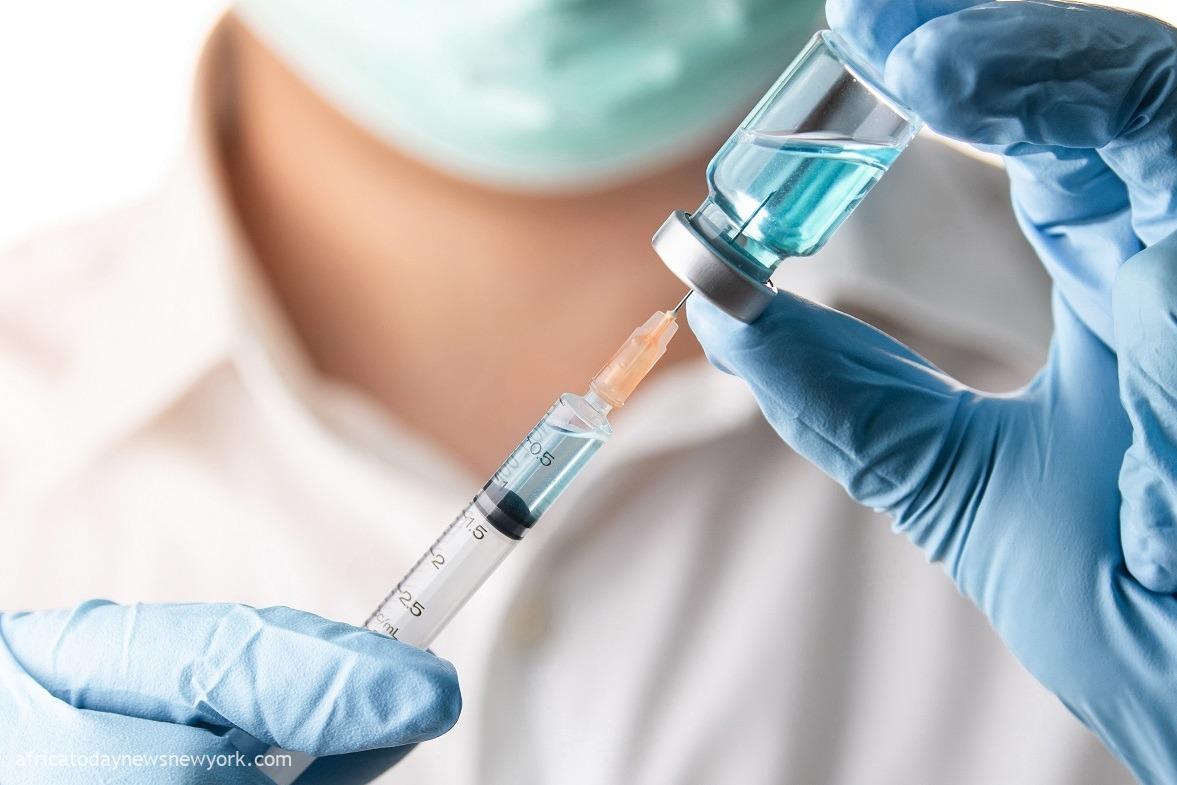In what he believes will boost national self-sufficiency, the Minister of State for Health, Dr. Tunji Alausa, has urged for an absolute ban on the importation of medical syringes, emphasizing the need to foster indigenous production and bolster economic development.
Speaking during an official tour of the state-of-the-art Afrimedical Manufacturing and Supplies Limited Syringe facility in Karameh Industrial City, Arepo, Ogun State, Alausa reiterated the government’s commitment to bolstering the local manufacturing sector, emphasizing its pivotal role in augmenting the Gross Domestic Product (GDP).
Joined by the Director General of the National Agency for Food and Drug Administration and Control (NAFDAC), Prof Mojisola Adeyeye, and other senior government figures, the Minister emphasized that the overhaul of syringe and needle manufacturing in Nigeria is geared towards ensuring the accessibility of top-tier products crafted by Nigerians, thereby fostering substantial job creation opportunities.
In his plea to NAFDAC to prevent the unregulated influx of syringe imports from obstructing the advancement of the domestic industry through unfair competition, he urged for avoidance from issuing any more import approvals. He noted that we must safeguard the local industry by promoting backward integration strategies that enhance our domestic capacity.
Additionally, the Minister implored the NAFDAC Director General to liaise with all relevant agencies to fulfill the government’s policy objectives, reaffirming President Bola Tinubu’s unwavering commitment to dismantling obstacles obstructing industrialization and manufacturing in Nigeria.
Prof. Mojisola Adeyeye, the head of NAFDAC, reiterated the necessity for a synergistic effort among all relevant government agencies to address the issue of subpar and counterfeit medical devices making their way into the country via ports.
She mentioned that the names were forwarded to WHO, which was approached for guidance on prequalification and eventual access to the items for utilization. The Director-General, meanwhile, stressed the necessity of a comprehensive approach to counter the influx of substandard and counterfeit medical devices into the country. She disclosed that certain medical items continue to penetrate the nation with the assistance of corrupt officials at the ports.
“However, for the local manufacturers, we are doing hand-holding with our Syringe companies. Hand-holding, meaning we are working with them by correcting whatever we found wrong or inappropriate in their operations, adding that this initiative has started yielding positive dividends as the World Health Organisation WHO recently requested for names of the three syringe manufacturing companies in Nigeria to do business with,” Adeyeye noted.
She noted that the names were passed on to WHO, which was reached out to for advice on prequalification and eventual access to the items for utilization.
The Director-General, however, stressed the need for a comprehensive approach to tackle the importation of substandard and counterfeit medical devices into the country. She disclosed that despite efforts, certain medical items are still finding their way into the nation with the aid of corrupt authorities at the ports.
According to her, the government had previously imposed substantial duties on syringe imports to discourage them. She did, however, express sadness that the system in the ports violates that principle. “That’s the problem. To address the issue, the government will use a holistic strategy. NAFDAC, SON, and Customs are not the only agencies capable of doing so.”
The NAFDAC boss acknowledged that the syringes made locally could be a bit more expensive, but she also said that the price will drop as the local sector gains more traction.
In addition, she encouraged the government to lower import taxes on essential equipment and raw materials used in domestic production, saying that they should be exempt from duties for a certain period. She stated that NAFDAC has the authority to impose a ceiling on imports and that the three Nigerian firms are capable of producing enough syringes to meet local demand while still exporting.
Read also: Nigerians Spent $1.5B On Medical Tourism, School Bills – CBN
Addressing a delegation of esteemed government officials and the UN Deputy Secretary General, Mr. Mofid Karameh, Chairman of Mikano International, underscored his firm’s determination to overhaul the sector, highlighting their mission to reinstate Nigeria’s prominence as the foremost epicenter of progress across the African continent.
He emphasized that the company takes pride in its globally recognized factory, boasting an annual output capacity of 1.8 billion syringes, all manufactured using state-of-the-art E-beam sterilization technology.
Since its establishment in 2019, he noted that Afrimedical has risen as a leading supplier of medical innovations, offering a diverse range of products including sterile hypodermic syringes in capacities of 2ml, 3ml, 5ml, and 10ml, alongside 0.5ml auto-disable immunization syringes, face masks, and sanitizing tunnels.
As a subsidiary of Mikano International Limited, Afrimedical Manufacturing and Supplies Limited specializes in producing hypodermic syringes and various healthcare essentials, addressing the healthcare demands of Africa and contributing to life-saving efforts. Mr. Karameh emphasized that these tailored solutions are designed to safeguard medical facilities and practitioners across Nigeria and the entire African continent from virus-related risks, demonstrating Afrimedical’s unwavering dedication to healthcare safety.
According to Mr. Akin Oyediran, Managing Director of Afrimedical, the company’s vision extends beyond Nigeria’s borders, as they aim to produce top-notch syringes not just for Nigeria but also for neighboring nations. He emphasized that Afrimedical employs high-quality medical-grade materials in its production process, resulting in syringes that utilize 30 percent less plastic compared to conventional methods.

